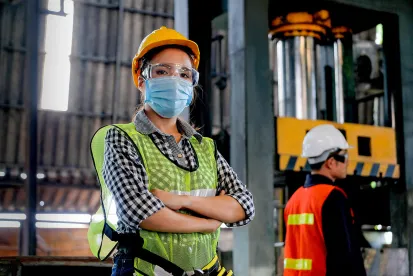Manufacturing employees have a hand in everything that our country produces. Naturally, manufacturers want to know their employees are reliable and trustworthy. Manufacturers are taking steps, including background checks, to ensure a single hire does not inadvertently cause liability.
Manufacturers have other reasons to want to know about their workers. Manufacturing employees often operate equipment or control processes that require vigilant attention and where, for example, drug impairment might have severe consequences. In addition, other manufacturing employees have access to large quantities of valuable supplies, making potential theft a costly risk.
Background checks are the traditional means to assist in ensuring quality hires. Background checks are regulated by the Fair Credit Reporting Act (FCRA). The FCRA imposes certain requirements on employers and background check companies, such as providing a stand-alone disclosure form to employees and job applicants at certain times.
In light of continuing workforce shortages and ever-changing legal requirements, manufacturers may find they need to review and change their hiring standards and criteria. In some cases, employers may have relaxed their former standards as being outdated. Regardless of how any manufacturer decides to go about performing background checks, they should keep the following recent developments in mind.
“Ban the Box” Laws Enacted in States and Cities
“Ban the box” laws (also referred to as “Fair Chance Acts”) limit employers’ access to a job applicant’s criminal history. Typically, these laws require employers to consider qualifications first when considering a person’s eligibility for employment. Different states, and even some municipalities, have enacted their own requirements. Multi-state employers, therefore, should take care to confirm the requirements of their state and local laws and requirements, if any, before conducting background screening. These laws have grown in popularity.
Employers making decisions based upon a criminal history record are urged to conduct an individualized assessment (and certain jurisdictions have mandated this step).
Further, the federal Fair Chance Act became effective on December 20, 2021, and federal contractors must comply with its requirements.
Drug Screening Guidelines Change for Marijuana
It has been nearly 10 years since Colorado and Washington became the first states to legalize recreational cannabis use. Since then, other states have followed suit, and the U.S. House of Representatives passed the Marijuana Opportunity Reinvestment and Expungement Act (MORE Act) on April 1, 2022. The MORE Act is intended to decriminalize cannabis use nationwide and remove cannabis from the federal schedules of controlled substances. It is under consideration by the U.S. Senate.
Regardless of whether the MORE Act becomes law, the legal landscape governing cannabis use has changed significantly in the last decade and will likely continue to shift. For instance, some states that have loosened cannabis restrictions also have enacted laws prohibiting discrimination against employees and job applicants based on their lawful use of cannabis. As states continue to legalize or loosen restrictions on cannabis use, manufacturers should exercise caution and ensure they understand state and local laws governing cannabis use as related to drug and background screening and the treatment of job applicants.
Equal Employment Opportunity
Manufacturers should take steps to ensure their hiring practices comply with federal, state, and municipality equal employment opportunity laws, especially for criminal history. In the past, the Equal Employment Opportunity Commission has been concerned that even if an employer has a job-related reason for a background check, such a practice may tend to have a disparate impact on protected classes. Employers are always cautioned to review existing “neutral” policies to ensure they do not have a disproportional negative impact on a particular group, to minimize risk of discrimination claims. Further, some automated screening processes using artificial intelligence may inadvertently discriminate unless they are carefully designed.
Manufacturers should closely monitor the impacts their policies may have on applicants to avoid unintentionally disparate outcomes when examining and making hiring determinations based on applicants’ backgrounds.





 />i
/>i

